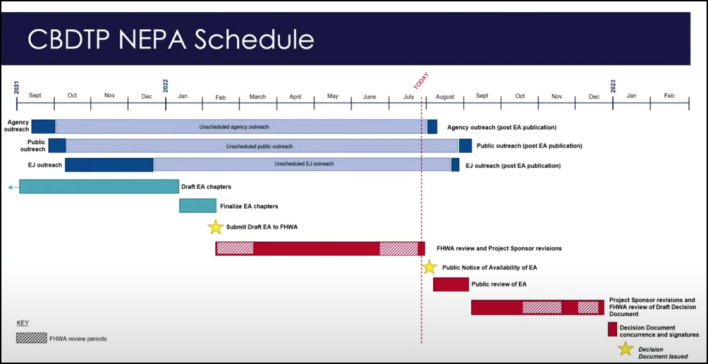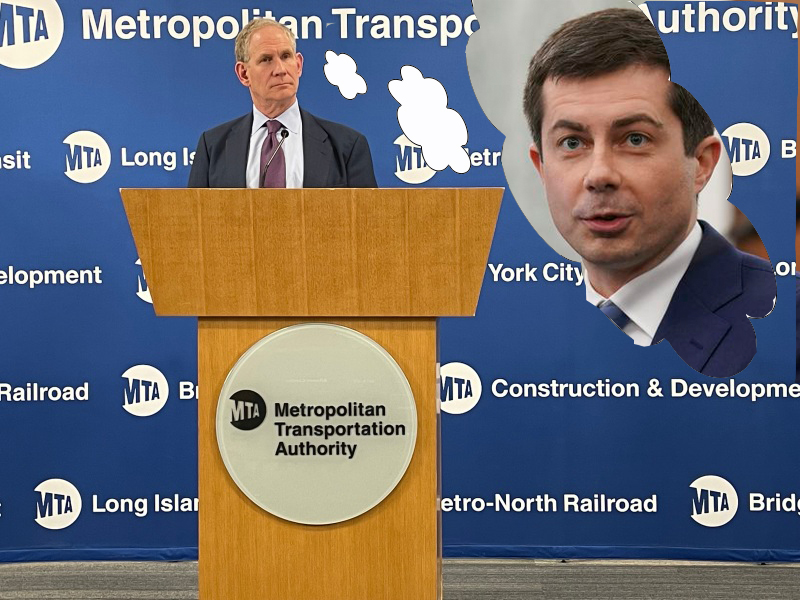What's a quarter of a billion dollars among friends?
The MTA quietly pushed back its implementation of congestion pricing by another few months, a move that the agency said would cost it quarter of a billion dollars in expected revenue in 2024.
The agency wrote in its February Financial Plan this month that the delay from the expected first quarter of next year until the second quarter "will reduce anticipated [congestion pricing] revenue ... from $1 billion to $750 million in 2024. The operating budget is not impacted by this adjustment."
On Thursday, MTA CEO and Chairman Janno Lieber insisted, and not for the first time, that the latest delay is not a cause for major alarm, despite the authority's well-documented fiscal troubles.
"We need that money," said Lieber, "but from a cash flow basis, we don't need the money tomorrow. And so far, we have been able to fund and advance all the projects that were scheduled to be advanced in our capital program.
"At some point we do need that congestion pricing money. We have some more time but it's not endless. So I am continuing to push forward," he continued.
The MTA is still waiting for the Federal Highway Administration to give a final sign off on congestion pricing's environmental assessment, which itself has been previously delayed. After congestion pricing passed the state legislature in 2019, the MTA hoped it could begin by January 2021. That optimistic timeline was pushed back during the Trump administration, which refused to take up the issue.
More recently, the MTA still hoped to begin the tolling in 2023, a timeline that's no longer possible.
It's not the first time the MTA has suggested that it can wait for congestion pricing revenue. In 2021, MTA Chief Financial Officer Bob Foran made the same point — which advocates from Reinvent Albany refuted by pointing out that money today is worth more than money tomorrow.
"Time is money, and every day the MTA fails to get congestion pricing revenue, the MTA loses funds that could go to modern subway signals, new train cars, new buses and station accessibility," the watchdog group wrote at the time. "Additionally, delayed money that eventually comes in will have less value due to its having to cover inflated costs for labor, materials and equipment."
However Lieber spun the delay, the fact remains that the MTA's current five-year moderization and repair effort is behind the pace of previous capital construction plans in terms of both funding commitments and expenditures.
"To date, only $9.7 billion of the $55-billion plan (or 17 percent) has been received by MTA, largely from federal funds ($6 billion)," said Reinvent Albany Senior Researcher Rachael Fauss at Wednesday's Board meeting. "Capital spending is also behind historic levels, and it is troubling that the MTA’s most ambitious plan yet is lagging — as of 37 months into the 2015-19 and 2010-14 plans, both were funded at higher levels."
The latest congestion pricing delay has been known to the MTA since the end of January, if judged against the authority's last updated schedule for the environmental assessment process. When the MTA announced last July that the draft environmental assessment was finally being made public, the agency predicted that the federal thumbs-up would happen in January 2023 instead of December 2022.

The release of the draft environmental assessment on congestion pricing was famously delayed for over a month by what Lieber said were over 400 technical questions from the Federal Highway Administration and a requirement to do traffic modeling that comprised areas as far away as the Philadelphia suburbs. Although January came and went without a final decision from the feds, Lieber declined to pick a fight last month like he did last May.
"I'm not ready to to blame anybody. I'm not going to gainsay that there is delay but this is a complicated federal process. We have to answer a lot of really complicated technical stuff, we're modeling eight or nine different scenarios and doing a lot of a lot of complex environmental air quality analysis as well. We have to answer all their questions and respond to their their procedural requirements. But we're pushing forward and I'm optimistic that our partners in the federal government are moving ahead in good time," Lieber said at the end of January.






